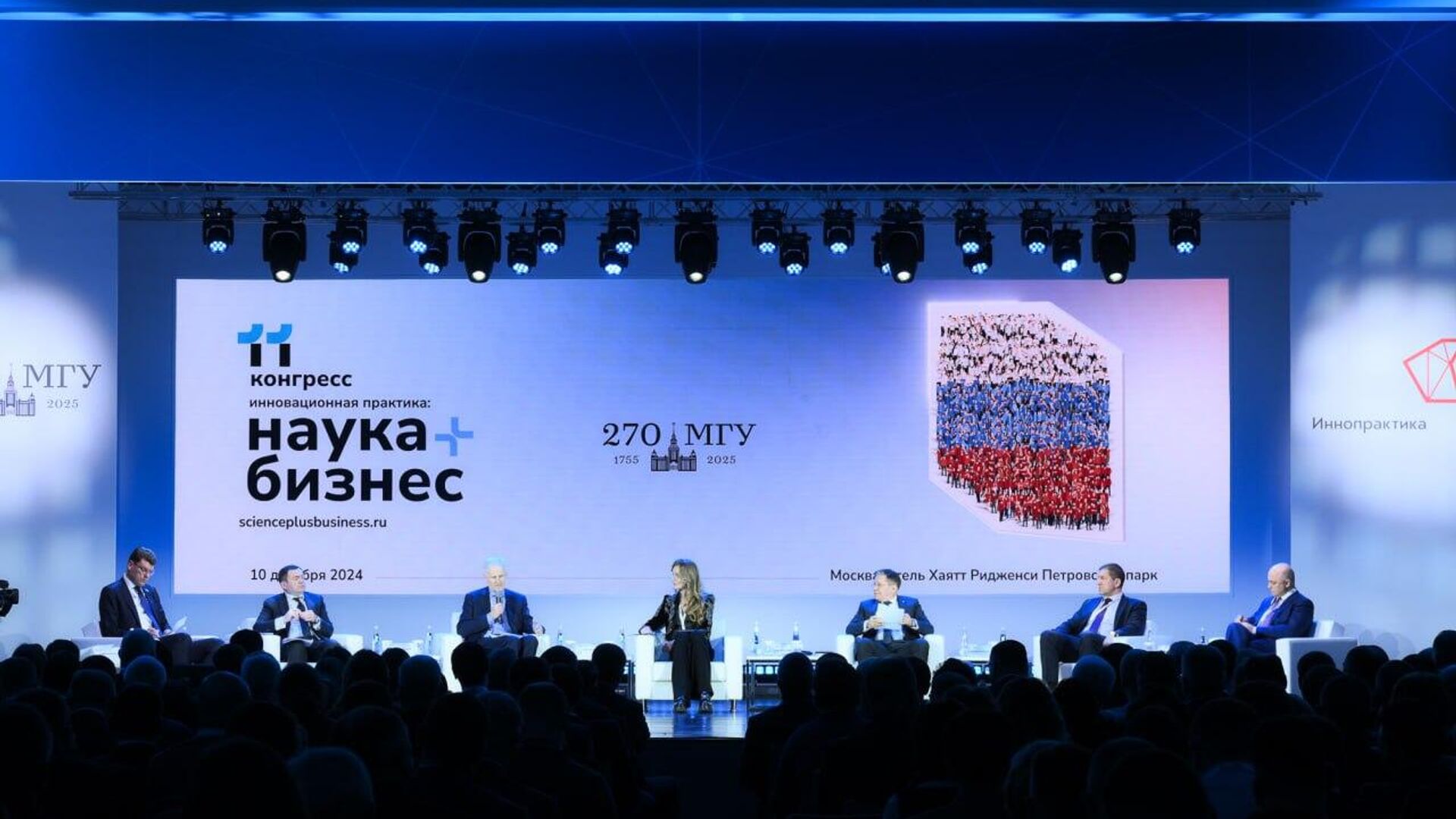From Import Substitution to Tech Leadership: 'Innovative Practice' Congress Takes Place in Moscow
16:33 11.12.2024 (Updated: 16:43 11.12.2024)

© Sputnik
Subscribe
More than 1,600 people took part in the congress, including top officials and leading specialists from the Russian government, large Russian corporations, development institutes, investment companies, representatives of universities, research institutes and high-tech Russian organizations. A total of 17 events were held at the venue.
On Tuesday, the XI Congress "Innovative Practice: Science Plus Business" was held in Moscow, with two strategic sessions for the first time, which allowed even more theses and proposals to be submitted to the plenary session, dedicated to ensuring financial and technological sovereignty for the Russian economy, the organizers said in a press release.
The event was organized by the Innopraktika company and Lomonosov Moscow State University (MSU).
At the congress' plenary session, the speakers, in turn, discussed what conditions are most relevant today for achieving Russia's comprehensive sovereignty in the new geopolitical conditions. They noted the importance for the country of popularizing the values of a multipolar world and expanding mutually beneficial cooperation with this world in the most significant areas of activity for Russia, including science, business, education and culture.
In his welcoming speech, MSU Rector Viktor Sadovnichy noted that the annual meetings of representatives of science, education, government and business at the Congress are a powerful incentive for the birth of new ideas for innovative development. According to him, "In just a year, these ideas are discussed by the participants of the Congress in the form of implemented projects."
One example was the creation of an inter-university quantum network, a large-scale project initiated by the Russian president, part of which was supported by the MSU.
"I would note that we need a properly oriented customer from the labor market. Because the higher education system is structured in such a way that changes there do not occur as quickly as we would all like. But if you set the ship on course, then it will quite clearly follow the set priorities. And here it is important for us to correctly choose the goals for 5, 7, 10, 15 years. I mean the number and quality of specialists that we would like to get. We are doing a lot of work to ensure that almost all industries have a clearly formed image of the result. The main thing is that it is conveyed to the higher education system, and then, again, without losses, transformed into educational technologies, the content of education, primarily educational programs and accompanying methodological materials," said the Russian Minister of Science and Higher Education Valery Falkov at the plenary session.
Summing up the results of the plenary session, the moderator and First Deputy General Director of Innopraktika NGO, Natalia Popova, noted: "For three years now, we have been discussing the topic of joint sovereignty at the Congress, including scientific, personnel and educational aspects."
"This year, we have added another important aspect to these topics - multipolarity. Multipolarity implies the readiness of companies to enter the markets of friendly countries, present their technologies and take leading positions not only in the domestic market of Russia, but also abroad. We are ready to cooperate with those countries that share our values. Our goal is to move from import substitution to technological leadership. To do this, we must develop in-demand technologies and enter new markets," she said.
Aide to the Russian President Andrey Fursenko, in his turn, stressed that only "a country that has real competitive advantages over other countries, regardless of whether it is a friendly or unfriendly country, can be a leader in anything."
"And we must be leaders, because then our opponents will not always know what to expect from us. This is an important advantage. And friendly countries are motivated to follow our standards. The main success of any state is to form its own standards and offer them to the whole world. It seems to me that the issues of choice, definition, goal-setting are a very difficult thing, and they depend on several factors. Yes, of course, we need infrastructure, we need human resources, but the main thing is that we must understand for ourselves what we want from the point of view of prospects and why we want it. These goals should not only be national, they should be global," he explained.
